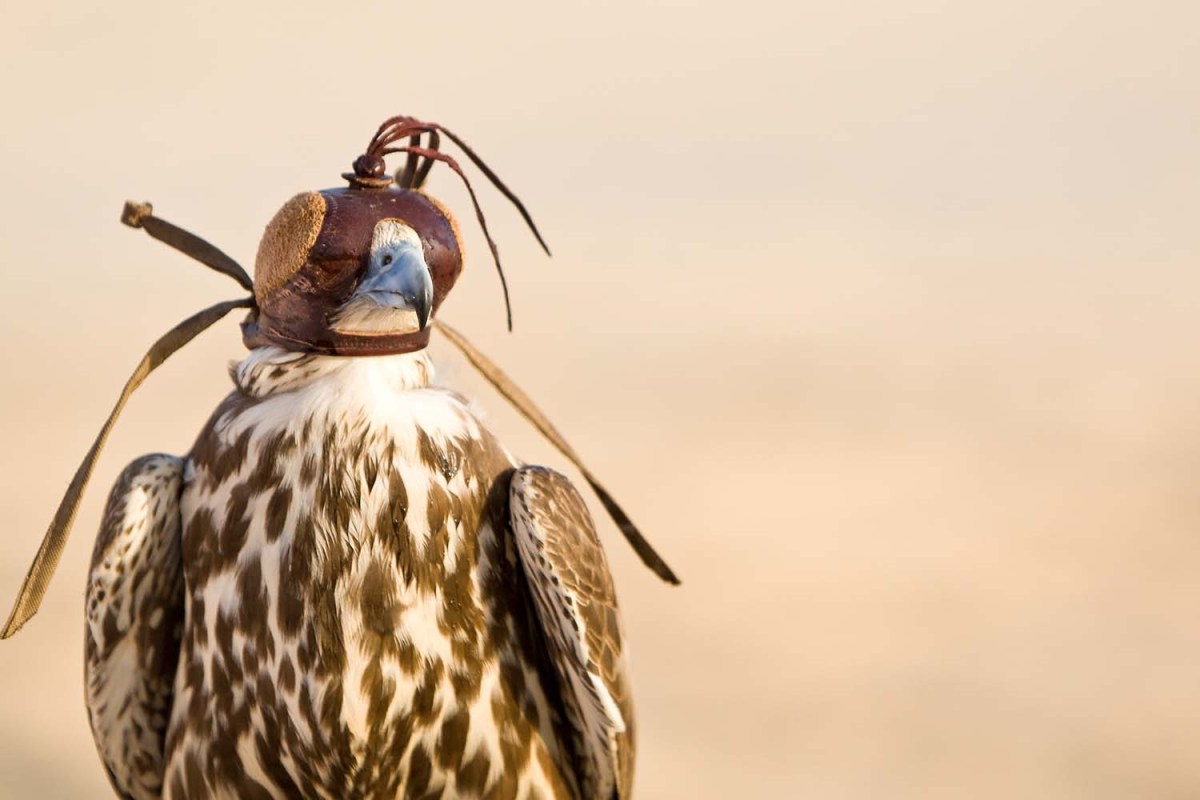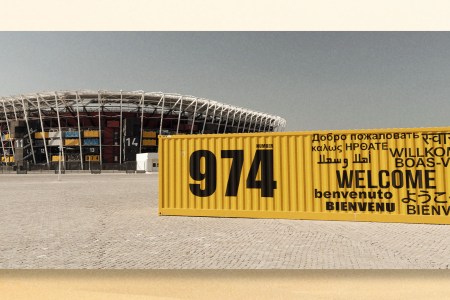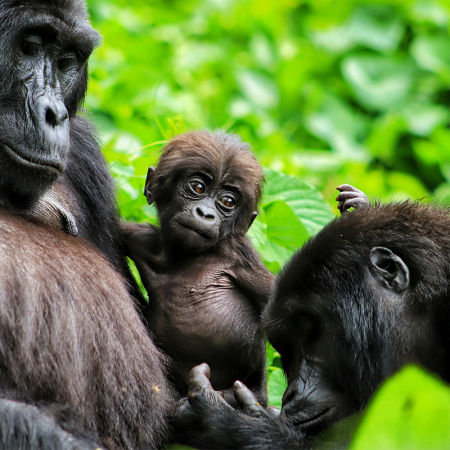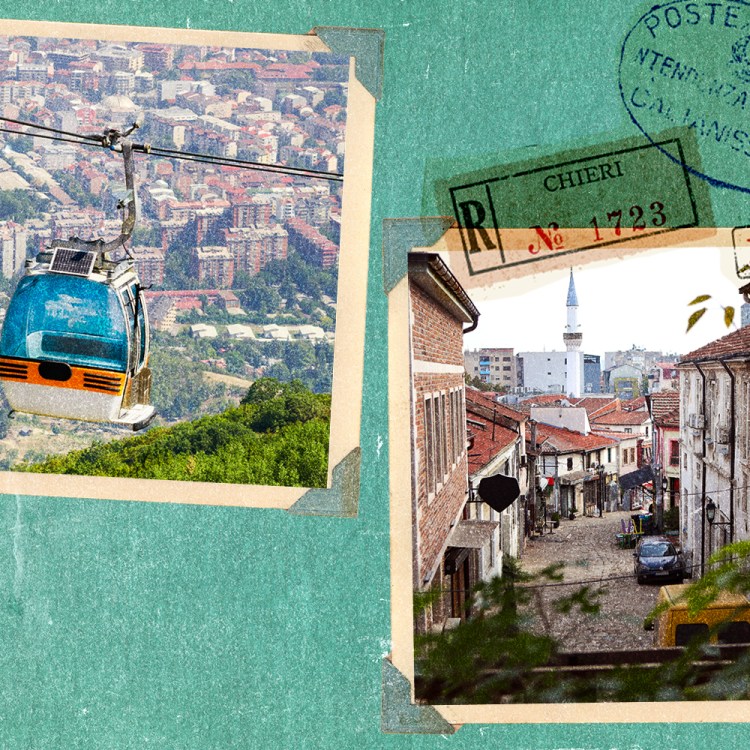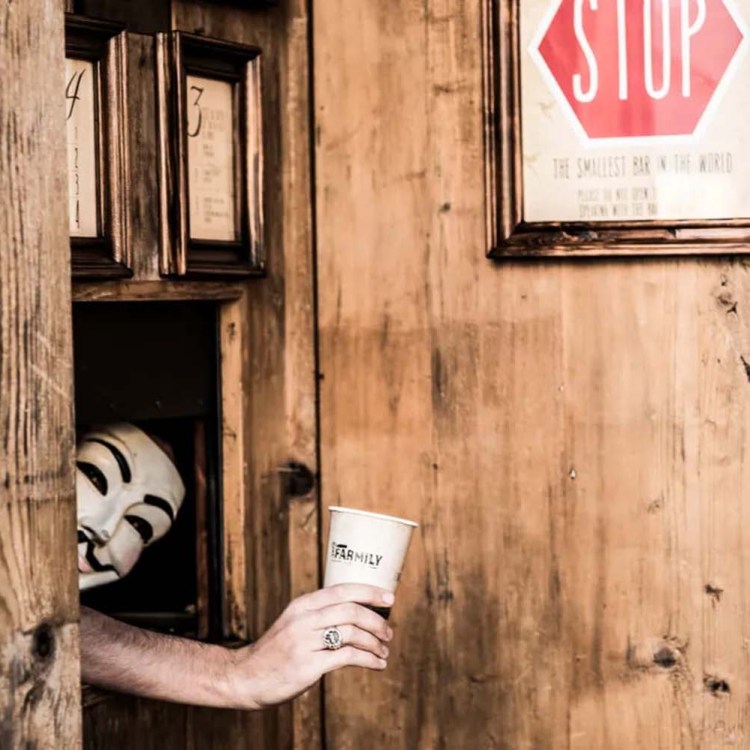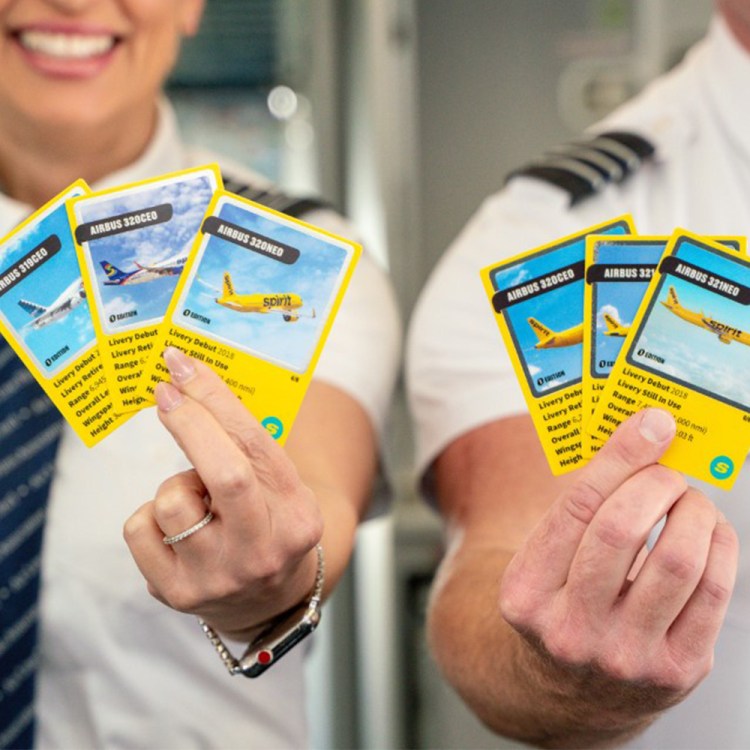Would you be surprised to enter first class on a UAE airline and see an uncaged falcon perched in its own spacious seat? Well, you shouldn’t be. Carriers such as Etihad of Abu Dhabi and Emirates of Dubai, as well as Qatar Airways and Royal Jordanian, allow passengers to bring falcons into the cabin as carry-on baggage. And each bird has its own passport.
Falcons have always been part of the Bedouin culture, and the tradition of falcon hunting remains a long-established pastime. The national bird of countries such as Saudi Arabia, the UAE, Kuwait, Oman and Qatar is a symbol of freedom and courage, as well as a status symbol, with falconry even recognized by UNESCO as an Intangible Cultural Heritage of Humanity.
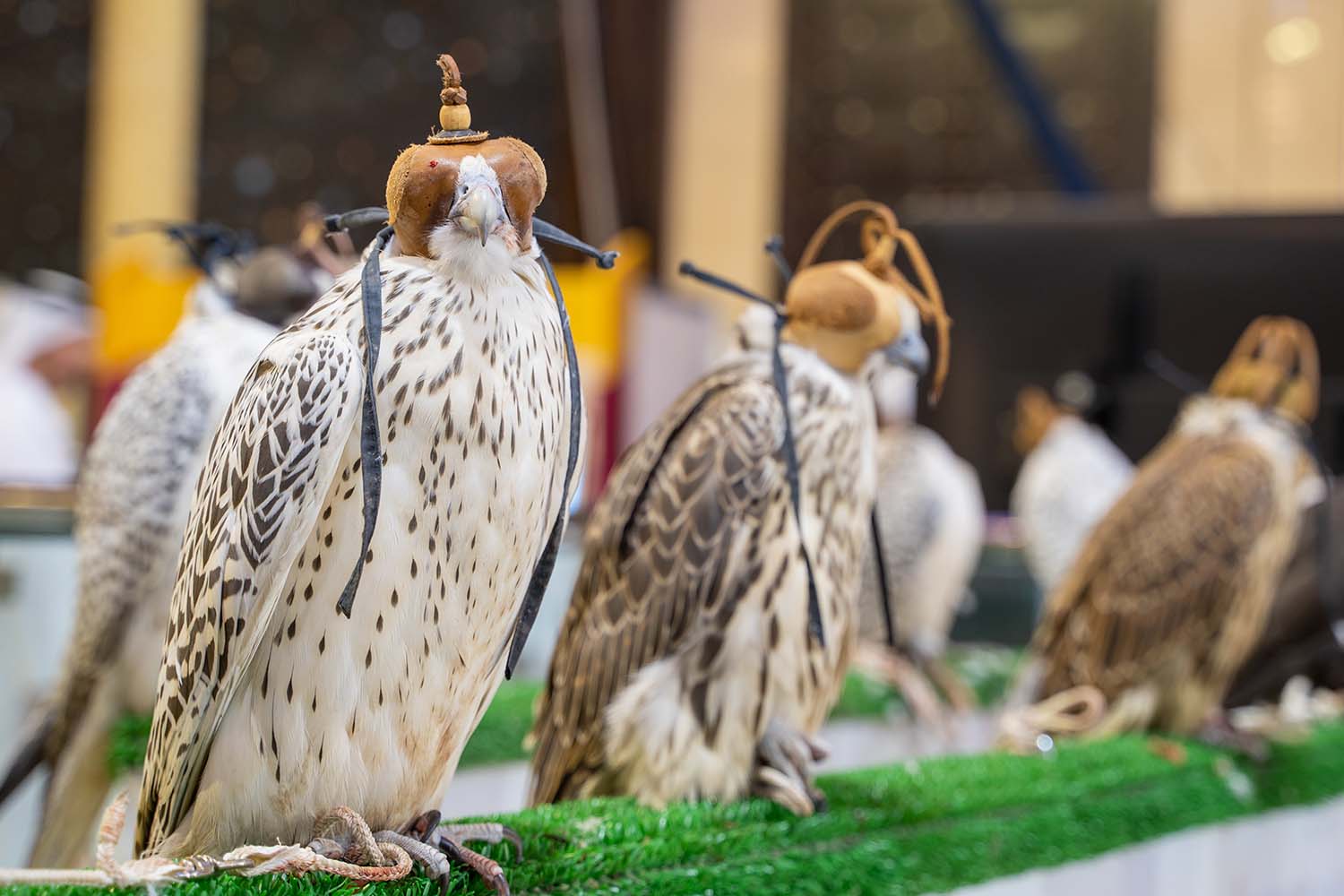
Falcon Souq
Qatar’s Souq Waqif is a warren of alleyways and lanes crammed full of stalls selling everything from spices to gold to falcons. Turn right behind the camel pen, where the haughty steeds of the Emiri Special Guard spend their day, and you’ll get to the Falcon Souq. There, a square is lined with wooden beams where the falcons perch. From tiny and scruffy to large and imposing, the birds of prey selection would make any enthusiast’s heart beat faster. You will have to fork over somewhere between $1,200 for a little one, to $10,000 or more for pedigree, top-of-the-range luxury hunting falcons. Add the accessories — think perches, snazzy little leather hoods, bells, tethering leashes, training implements and protective gauntlets for the smitten owner — and you have a hobby that puts golfing to shame.
A Non-Soccer Fan Visits The World Cup 2022 Sites — and Narrowly Survives a Desert Safari
Our writer went to Qatar to preview the host city for the world’s biggest sporting event and (maybe) learned to love the beautiful game in the processGoing Hunting
When Bedouins still migrated through the Middle Eastern desert, they captured falcons, trained them and used them to hunt things like hares and other birds. Protein can be hard to come by in the desert, and a bird’s eye view of the sand dunes is a huge advantage.
“Falconry, traditionally used as a survival tool, was basically a different form of the hunting rifle,” Ruan Botha, managing director and co-founder of WildFlight Middle East, says. “In recent years, much has changed, however. The art form is preserved by creating interests such as falcon racing, rehabilitation and special breeding projects for conservation purposes. The basic training techniques are kept, but the use of smart technology was added for the increase of fitness prior to a release program of rehabilitated or endangered species.”
While hunting is mostly illegal now across most of the Middle Eastern states, there are still competitions and shows of skill, and most traditional families still have falcons and use them to hunt — though only for specially-released prey. Training and flying falcons plays an important role in the hobby, which transcends history, culture and traditions of modern life. Today, an owner might drive their falcon in a luxury car — such as the bespoke Bentley Bentayga Falconry, designed with falcon enthusiasts in mind — to a festival, rather than releasing it from a camel in the hopes that it will bring back dinner. The birds are still more of a status symbol than any luxury car, though.
The winter season sees the advent of several falcon festivals across the region, such as the Qatar International Falcons and Hunting Festival, which takes place annually in the south of the country. Here, owners of various age and skill groups compete against each other in numerous events, like pigeon chasing, the art of luring and accuracy of flight, among others. Specially trained pigeons are released for the falcons to chase and catch, with the best falcons — or, more accurately, their owners and trainers — potentially winning prizes in excess of $10,000. But if the pigeons elude their captors, as has happened before, the prize money goes to the pigeon trainers instead.
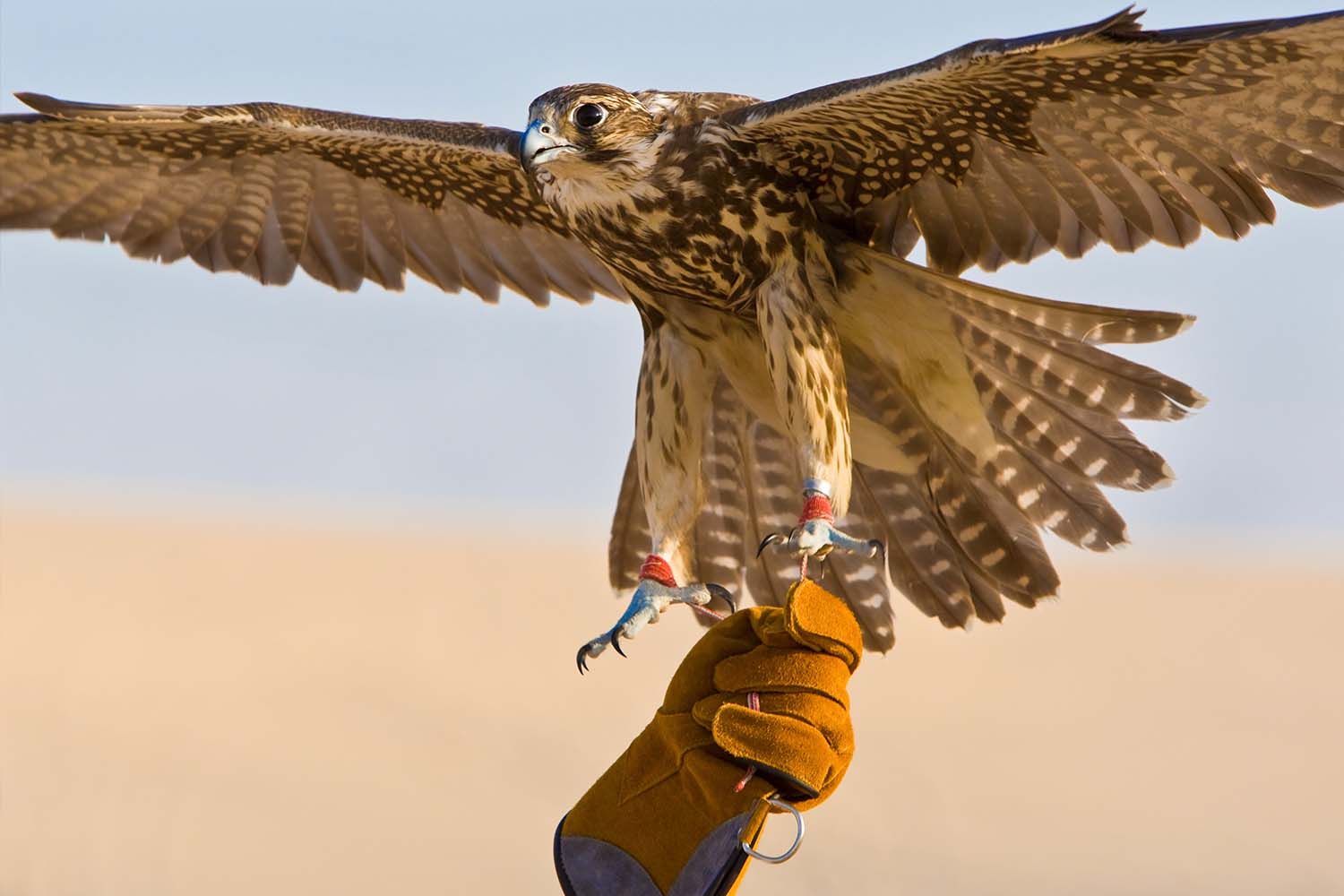
Beauty Contests
While a falcon’s skill is more valued than its looks, they do occasionally get a go at pageantry as well. At the annual Abu Dhabi International Hunting and Equestrian Exhibition, there is — among other competitions — a beauty contest for captive-bred falcons. They’re not judged so much on the beauty of their eyes or fluffiness of their feathers, but, rather, on their proportions. “It’s very scientific,” says Dr. Margit Gabriele Muller, executive director of Abu Dhabi Falcon Hospital, who is often called in as a judge. “It’s not like you look at it and say, ‘well she looks amazing.’ You have to do measurements to work out the proportions.”
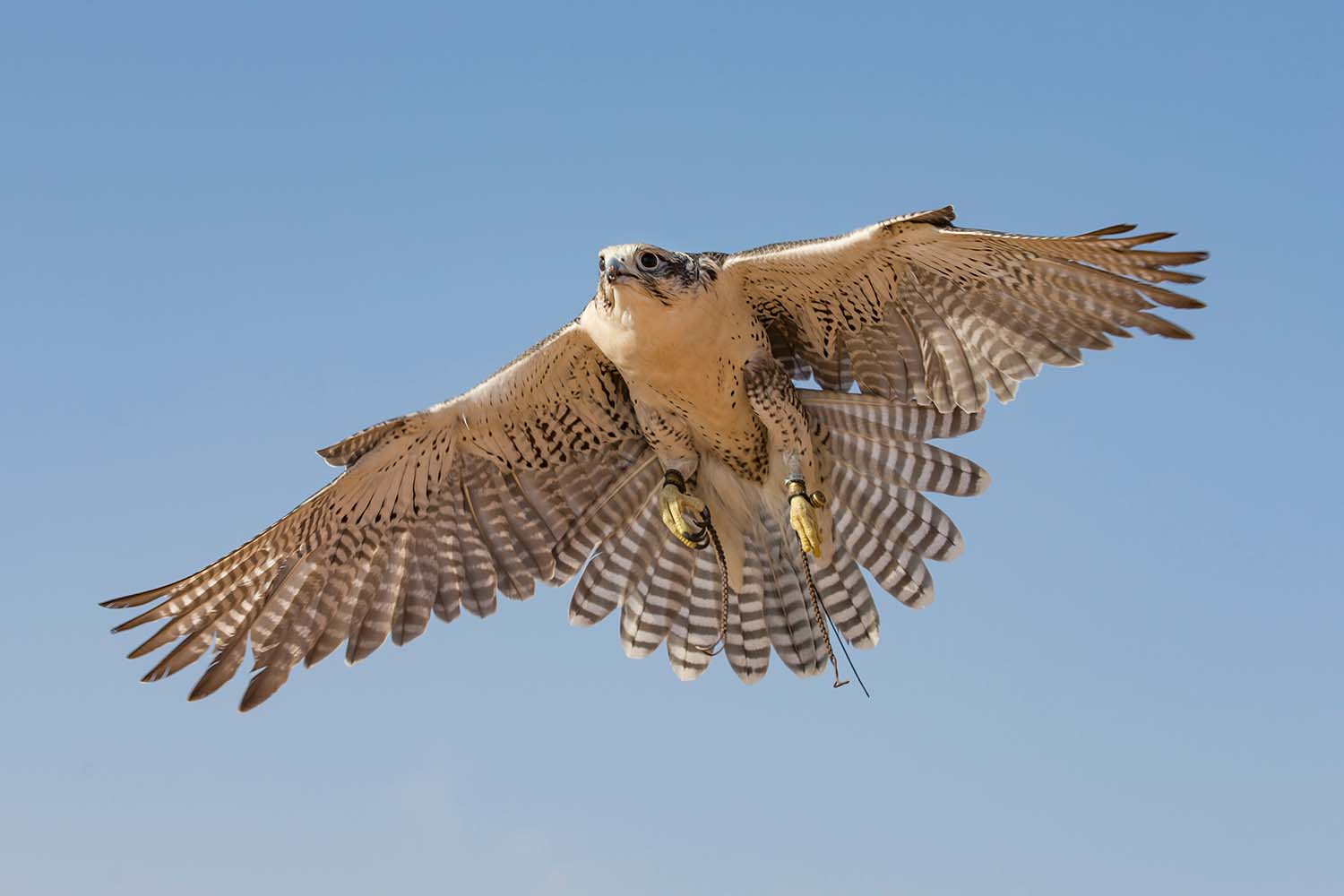
Special Care and Conservation
Both Qatar and Abu Dhabi have their own dedicated Falcon Hospitals, caring for nothing but these birds. Enter, and you’ll see waiting rooms for humans, albeit with falcons on their arms, and one specifically for birds, all sitting patiently in the dark waiting for their turn. The hospitals care for the falcons’ injuries, infections such as Falcon Pox and even offer boarding facilities. Abu Dhabi’s Falcon Hospital is the world’s largest and is involved in disease research. Dr. Muller is kept busy. ”Abu Dhabi Falcon Hospital has a patient influx of more than 11,500 falcons per year and is the leading center for falcon medicine worldwide,” she says. “We receive falcons with different cases and medical needs on a daily basis.”
On top of tending to the sick falcons, Abu Dhabi Falcon Hospital has a falcon breeding program to support falcon conservation, and is also in charge of the medical surveillance of the Sheikh Zayed Falcon Release Program, which aims to release wild peregrine and saker falcons back to their original habitat to preserve the natural falcon population. Visitors can get a closer look at what goes on in a falcon hospital during guided tours.
Where to Learn More
When in Abu Dhabi, stay at the seven-star Emirates Palace Hotel, and you can start your day with a falcon encounter during breakfast. Resident falconer Alex is on hand to explain more about the birds, and you can get up close and personal with the falcons. Alternatively, in Dubai, you can enjoy several experiences with falcons, such as a sunset falconry display in the desert with WildFlight.
This article appeared in an InsideHook newsletter. Sign up for free to get more on travel, wellness, style, drinking, and culture.
